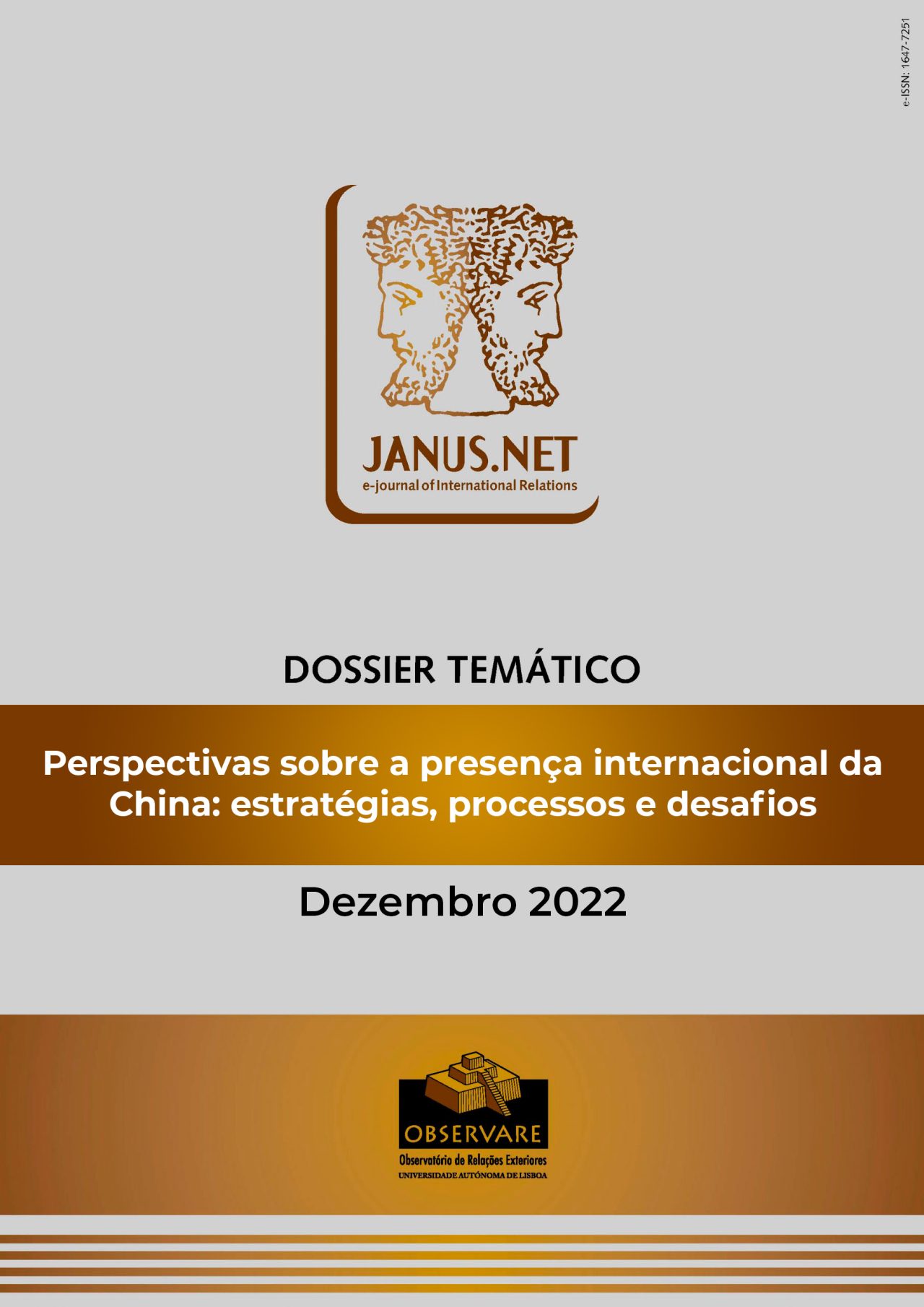A diáspora chinesa no Brasil: dispersão, mitologia da terra de origem e promessa de retorno
DOI:
https://doi.org/10.26619/1647-7251.DT22.2Keywords:
Brazil, China, migration, diaspora, São PauloAbstract
This paper aims to provide an overview of the presence of Chinese in Brazil, who are estimated
to be about 300,000 in number. Based on the dialectical relationship between Brazil and
China, this research works with the following hypotheses, which are also the lines of
problematization: China expels; Brazil receives; Sino-Brazilians emerge (the synthesis of the
process). The methodology consisted initially of bibliographical research. Later on, secondary
data was collected from the Museu da Imigração in São Paulo. The bulk of the empirical
material consists of interviews with five Chinese individuals, providing qualitative data, a
transcription and an analysis (application of questionnaires). In addition, a photographic and
documentary survey of the Chinese presence in São Paulo at specific points in the city was
carried out. The research began in 2003, and the fieldwork and interviews were carried out in
2006. After this period, the author studied Asian-Brazilian communication in social networks.
An analysis of all the materials was then made. For the concept of diaspora, references from
Stuart Hall and Adam McKeown were used. In the socioeconomic analysis, the Marxian concept
"industrial reserve army" accounts for the presence of large population contingents moving
around the world. The pull and push mechanism between populations and territories is a
construct used by Paul Singer and Herbert Klein to explain population movement. Regarding
the construction of a Brazilian identity that would also include Asians and their descendants,
the works of Jeffrey Lesser are worth mentioning. Concerning the insertion of the Chinese into
Brazilian society, the theories by Sigmund Freud and Eric Hobsbawn were used. Brazil, due to
the development of its market, has become a pole of attraction for people from all over the
world, including the Chinese. As the interviewees said, Brazil is seen as a country "under
construction". And today the Chinese have a place in the construction of a Brazilian identity.


